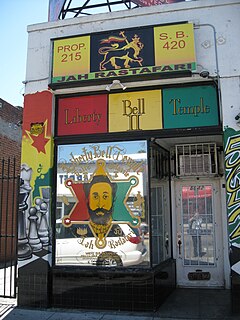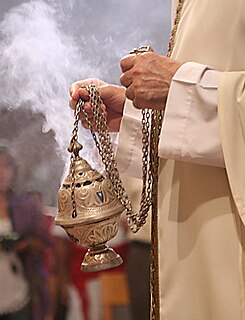 W
WDifferent religions have varying stances on the use of cannabis, historically and presently. In ancient history some religions used cannabis as an entheogen, particularly in the Indian subcontinent where the tradition continues on a more limited basis.
 W
WA censer, incense burner, perfume burner or pastille burner is a vessel made for burning incense or perfume in some solid form. They vary greatly in size, form, and material of construction, and have been in use since ancient times throughout the world. They may consist of simple earthenware bowls or fire pots to intricately carved silver or gold vessels, small table top objects a few centimetres tall to as many as several metres high. Many designs use openwork to allow a flow of air. In many cultures, burning incense has spiritual and religious connotations, and this influences the design and decoration of the censer.
 W
WCharas is a cannabis concentrate made from the resin of a live cannabis plant and is handmade in the Indian subcontinent and Jamaica. The plant grows wild throughout Northern India along the stretch of the Himalayas and is an important cash crop for the local people. The difference between charas and hashish is that hashish is made from a dead cannabis plant and charas is made from a live one.
 W
WA chillum, or chilam, is a straight conical smoking pipe traditionally made of clay or a soft stone. Examples of chillum were found in Pre-Columbian America, and it would evolve eventually into what we now know as the "elbow-pipe". It was used popularly in India in the eighteenth century. A small stone is often used as a stopper in the stem. The style of pipe spread to Africa, and has been known in the Americas since the 1960s. A chillum pipe is used in Rastafari rituals.
 W
WThe Church of Cognizance (COC) was founded in 1991 by Danuel & Mary Quaintance in Graham County (Pima) Arizona, United States.
 W
WCoachella Valley Church is a Rastafarian church of the Ethiopian Zion Coptic Church, located on The Alameda in San Jose, California. It was incorporated in 2016 and is at the same location as a previous dispensary, Amsterdam's Garden. The city has a history of litigation against its operators and seeks to end their operations, claiming it is an unpermitted marijuana dispensary.
 W
WCannabis has served as an entheogen—a chemical substance used in religious or spiritual contexts—in the Indian subcontinent since the Vedic period dating back to approximately 1500 BCE, but perhaps as far back as 2000 BCE. It was introduced to the New World by the Spaniards in 1530-45. Cannabis has been used by shamanic and pagan cultures to ponder deeply religious and philosophical subjects related to their tribe or society, to achieve a form of enlightenment, to unravel unknown facts and realms of the human mind and subconscious, and also as an aphrodisiac during rituals or orgies. There are several references in Greek mythology to a powerful drug that eliminated anguish and sorrow. Herodotus wrote about early ceremonial practices by the Scythians, thought to have occurred from the 5th to 2nd century BCE. Itinerant Hindu saints have used it in the Indian subcontinent for centuries. Mexican-Indian communities occasionally use cannabis in religious ceremonies by leaving bundles of it on church altars to be consumed by the attendees.
 W
WThe First Church of Cannabis is a cannabis-based registered church in the U.S. state of Indiana founded in March 2015 by Bill Levin.
 W
WThe International Church of Cannabis is a religious organization in Denver that uses cannabis as a sacrament. Members claim the use of cannabis helps elevate people to a higher understanding of self.
 W
WMagu is a legendary Taoist xian associated with the elixir of life, and a symbolic protector of women in Chinese mythology. Stories in Chinese literature describe Magu as a beautiful young woman with long birdlike fingernails, while early myths associate her with caves. Magu xian shou is a popular motif in Chinese art.
 W
WThe Assassins were a Nizari Isma'ili sect of Shia Islam who lived in the mountains of Persia and in Syria between 1090 and 1275. During that time, they held a strict subterfuge policy throughout the Middle East through the covert murder of first Muslim and later Christian leaders who were considered enemies of their state. The modern term assassination is based on the tactics used by the Assassins.
 W
WThe Pazyryk burials are a number of Scythian (Saka) Iron Age tombs found in the Pazyryk Valley and the Ukok plateau in the Altai Mountains, Siberia, south of the modern city of Novosibirsk, Russia; the site is close to the borders with China, Kazakhstan and Mongolia.
 W
WRastafari, also known as the Rastafari movement or Rastafarianism, is a religion that developed in Jamaica during the 1930s. It is classified as both a new religious movement and a social movement by scholars of religion. There is no central authority in control of the movement and much diversity exists among practitioners, who are known as Rastafari, Rastafarians, or Rastas.
 W
WReligious views on smoking vary widely. Indigenous peoples of the Americas have traditionally used tobacco for religious purposes, while Abrahamic and other religions have only been introduced to the practice in recent times due to the European colonization of the Americas in the 16th century.
 W
WScythian religion refers to the mythology, ritual practices and beliefs of the Scythian cultures, a collection of closely related ancient Iranian people who dominated Central Asia and the Pontic–Caspian steppe in Eastern Europe throughout Classical Antiquity and which included the Scythians proper, the Sarmatians, the Massagetae and the Saka. What little is known of the religion is drawn from the work of the 5th century Greek historian and ethnographer Herodotus. Scythian religion is assumed to have been related to the earlier Proto-Indo-Iranian religion, and to have influenced later Slavic, Hungarian and Turkic mythologies, as well as some contemporary Eastern Iranian and Ossetian traditions.
 W
WThe THC Ministry, founded by Roger Christie from the Religion of Jesus Church, is a religion which considers cannabis to be a sacrament. Members base their practices on what they see as an eclectic mixture of ancient wisdom, modern science, and the enlightening and healing properties of cannabis sacrament. Its mission includes "liberating the Cannabis plant and the minds of those who do and of those who do not revere it," and is actively involved in the legal and social discussions surrounding cannabis use in society. On July 8, 2010, Christie and 13 other individuals allegedly associated with the THC Ministry were indicted by a Federal grand jury in Honolulu on Marijuana Possession and Trafficking charges. Christie served four years in jail following an April 2014 sentencing, and is on probation until 2018.
 W
WThe Tocharians, or Tokharians, were speakers of Tocharian languages, Indo-European languages known from around 7600 documents from around 400 to 1200 AD, found on the northern edge of the Tarim Basin . The name "Tocharian" was given to these languages in the early 20th century by scholars who identified their speakers with a people known in ancient Greek sources as the Tókharoi, who inhabited Bactria from the 2nd century BC. This identification is generally considered erroneous, but the name "Tocharian" remains the most common term for the languages and their speakers. Their actual ethnic name is unknown, although they may have referred to themselves as Agni, Kuči and Krorän, or Agniya, Kuchiya as known from Sanskrit texts.